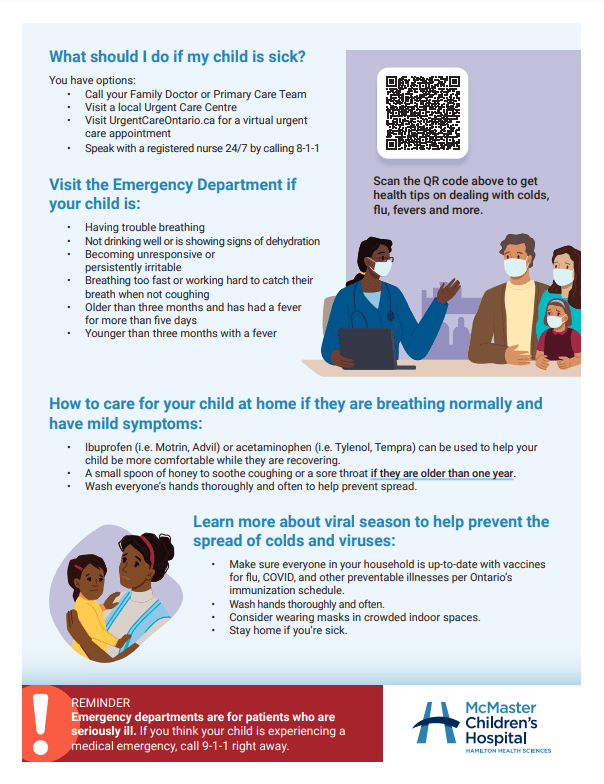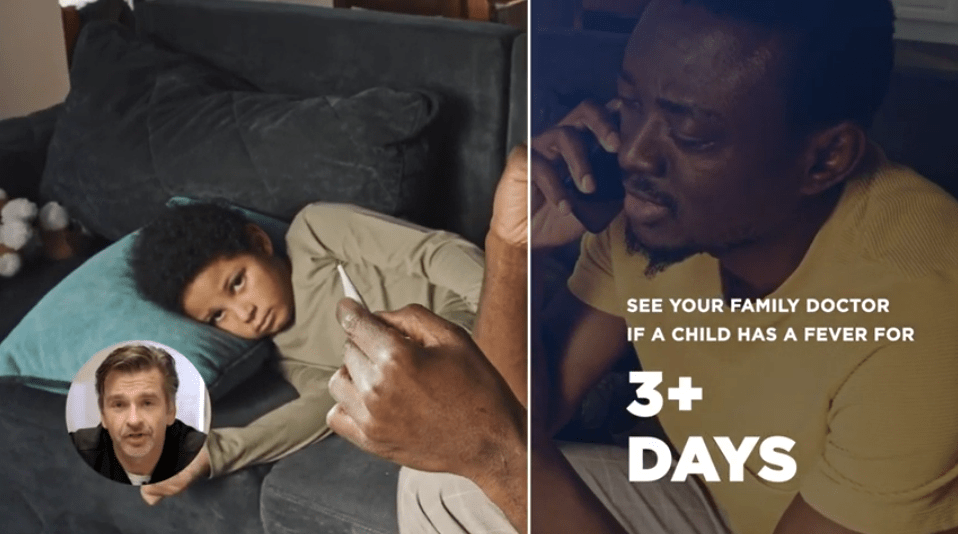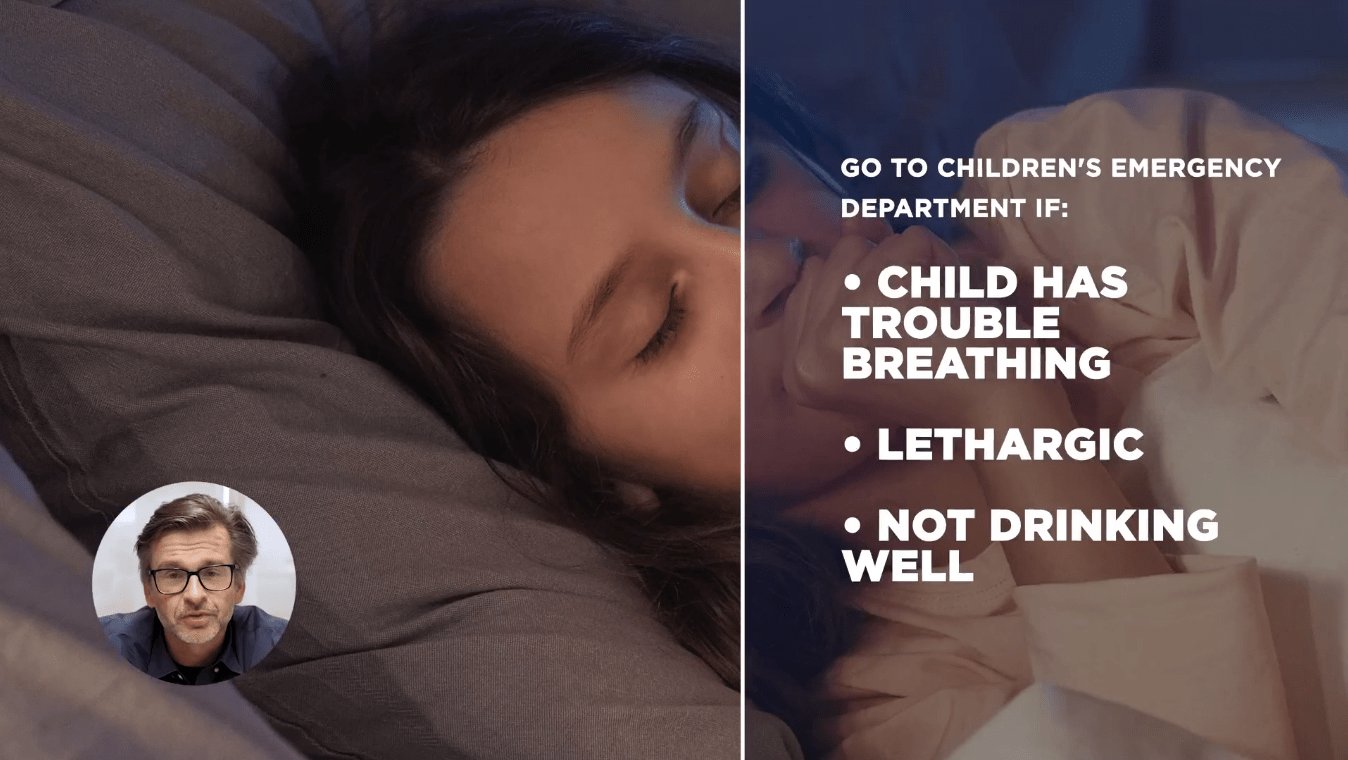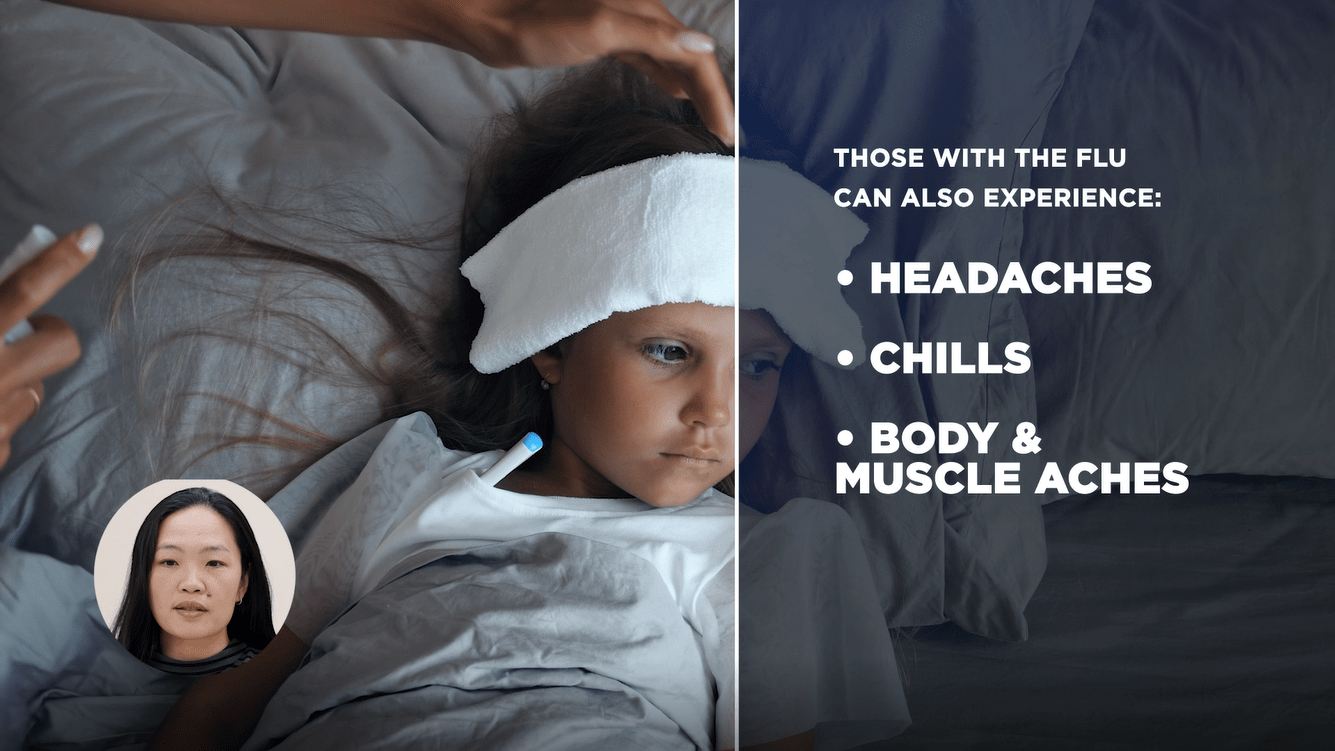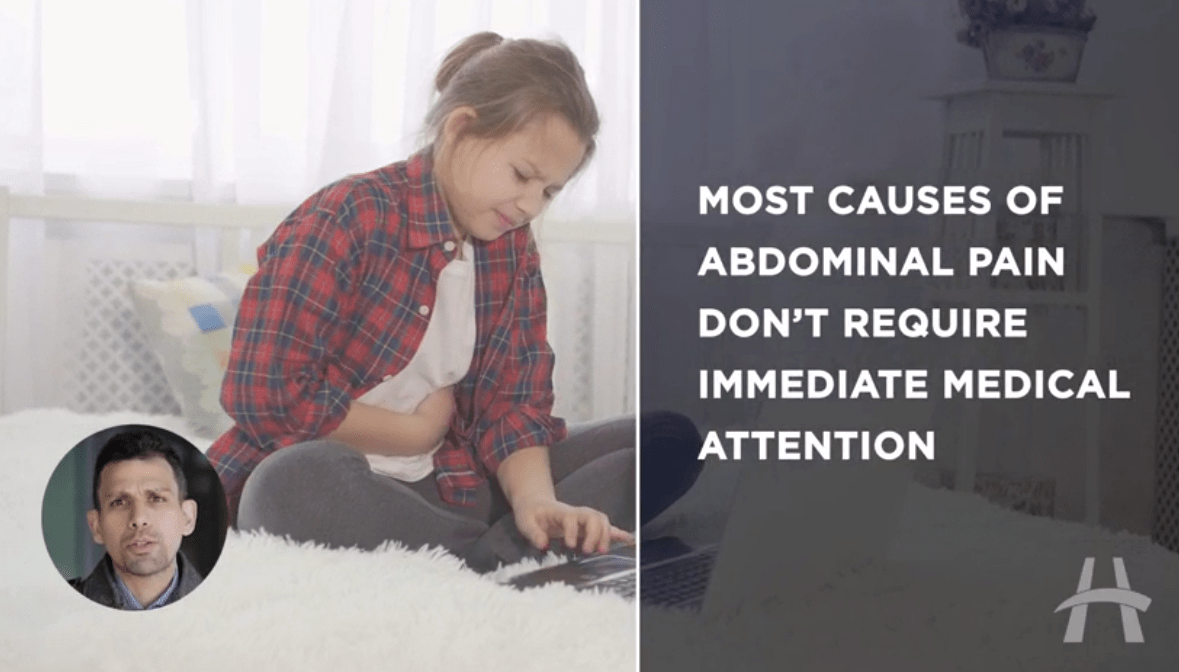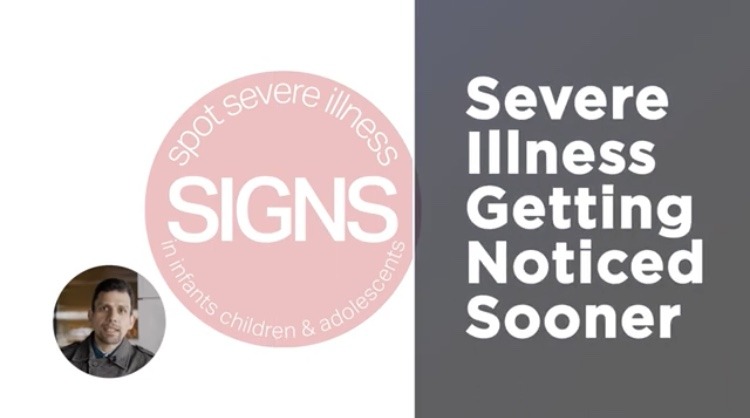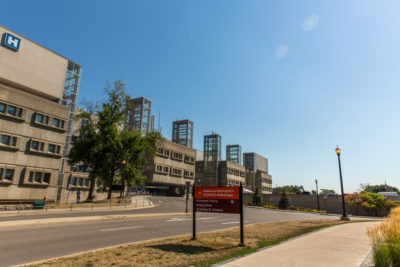If you think an infant or child is experiencing a medical emergency, call 9-1-1 right away.
Expect longer waits
-
- Come to McMaster Children’s Hospital if your child needs emergency care.
- Please bring any essentials you will need for a long wait. As always, the sickest children are seen first.
- Consider seeing your family doctor or visiting a walk in/urgent care clinic if your child’s medical concern is not an emergency.
- We appreciate your patience as our team is working hard to help!
At McMaster Children’s Hospital, our kids-only emergency department provides the most advanced care for infants, children and youth age 17 and under who have a serious illness or injury. Our team is made up of health care professionals who are specially trained in pediatric emergency care.
The McMaster Children’s Hospital Emergency Department is committed to providing your child with the best care possible. Not all kids will need to see an emergency medicine doctor. Learn about when you should come to the Emergency Department, and when to seek care from a family doctor or urgent care centre. See questions and answers below.
Viral season information sheet
At McMaster Children’s Hospital, we know it can be worrying when your child is sick. That’s why we put together some information for parents and families about your options when it comes to health care for your kids. Whether it’s the flu, RSV, COVID-19 or other illnesses, there are some key symptoms you want to watch for in your child.
Our Location
The McMaster Children’s Hospital emergency department is open 24 hours a day, 7 days a week.
McMaster Children’s Hospital
1200 Main St. West
Hamilton, ON L8N 3Z5
Health Tip Video Series
When to come to children's emergency
The McMaster Children’s Hospital emergency department is staffed by health care providers who are experts in pediatric emergency care. We assess and treat medical issues ranging from minor illnesses and injuries to life-threatening conditions. We treat patients with infections, difficulty breathing, injuries, mental health concerns, seizures, allergic reactions, tummy pain and many other conditions.
Our team is equipped to perform a wide range of procedures, such as:
- Setting broken bones or dislocated joints
- Stitching minor and major cuts
- Sedation
- Lifesaving procedures, such as intubation and resuscitation
We also provide our expertise to family doctors and other health centres in our region.
In the children’s emergency department, you may meet many different team members, including: emergency doctors and nurses, pharmacists, child life specialists, respiratory therapists, social workers, business clerks, and environmental aides.
Reasons to come to the children’s emergency department:
- Allergic Reaction or Anaphylaxis (swollen throat and can’t breathe) – if your child has an EpiPen, use it and come to emergency. If you don’t have an EpiPen, call 911.
- Experiencing a fever under one of these circumstances:
- Baby less than 3 months old
- Child with complex medical issues
- Child with immune system problems
- If lethargic, even after giving fever medication
- Severe headache or neck pain with fever
- Trouble breathing that doesn’t improve with fever medications or your child’s puffers
- Vomiting or diarrhea in a baby less than 3 months old, bloody diarrhea, dehydration (no pee for 8 hours), green vomit, a lot of stomach pain outside of vomiting or diarrhea
- Weakness, confusion or sudden change in mental status or alertness
- Injuries:
- Injured arm or leg that looks crooked, deformed or dislocated
- A fall with pain the neck, chest or stomach
- A burn that is blistering
- Head injury with extreme tiredness, loss of consciousness, and/or repeated vomiting
- Cuts that won’t stop bleeding or that are deep or big that might need stitches
- Eye injuries
- Poisoning or drug overdose – if your child is acting normally, try calling Ontario Poison Control first at 1-800-268-9017
- Seizure, loss of consciousness
- Suicidal with a plan or attempt
- Drowning and/or choking with trouble breathing afterwards
You know your child best. Please use your judgment and discretion. Call Health Connect Ontario at 811 if you are unsure if you should come.
When to visit an Urgent Care Centre
If you or your loved one is experiencing an illness or injury that isn’t an emergency but can’t wait for an appointment with a family doctor, an urgent care centre is a good option for you. Urgent care centres treat all ages: children and adults.
Examples of medical issues which require urgent care:
- minor cuts or wounds that may require stitches
- simple broken bones
- sprains, strains or deep bruises
- ear infections
- fevers, coughs, congestion, and sore throats
- insect bites, rashes and scrapes
Main Street West Urgent Care
690 Main Street West
Hamilton, ON
Hours: Noon – 7:00 p.m., 7 days a week
Urgent Care – King Campus (St. Joseph’s Healthcare Hamilton)
2757 King Street East
Hamilton, ON
Hours: 8:00 a.m. – 10:00 p.m., 7 days a week
Reasons to Seek Care from your Family Doctor, Walk-In Clinic, or Urgent Care Centre
- Ongoing nighttime cough after a recent runny nose/cough illness without fevers/trouble breathing and acting well otherwise
- Rashes/eczema that is not new – unless around eyes or in the mouth
- Hives alone
- New runny nose and/or cough with a fever of less than 5 days and no trouble breathing
- Ongoing abdominal pain without vomiting, weight loss, fevers, bloody stools
- Not new or worsening behaviour or aggression issues in a child under 10 years old
- Chronic concussion symptoms that are persistent but not worsening
- Doctor’s notes and concussion paperwork for school
- Scrapes and bruises
- Ankle injury where your child can still walk
- Ear pain
- If your child has on ongoing issue for which you want a referral to a specialist
- Chronic dental issues requiring a dentist
Please remember the doctors and nurses in the Pediatric Emergency Department are not experts in chronic conditions. They are experts in emergency medicine only.
What entrance do I use?
From the street level, McMaster Children’s Hospital’s Emergency Department can be accessed from the Emergency Department Entrance, next to the Main Entrance.
From the underground parking level, access the Emergency Department from the yellow elevators.
The McMaster Pediatric Emergency Department is located in the yellow section on the main floor (second floor) of the hospital.
What should I bring?
- Your child’s health card
- Water and nut-free snacks
- Please talk to your child’s nurse or doctor before giving your child anything to eat or drink. Depending on your child’s reason for visiting, some tests require an empty stomach so eating or drinking may delay treatment.
- Entertainment (books, toys, activities, headphones) to keep your child busy while you wait
- Phone charger
Can I bring other family members and siblings?
Two adult caregivers may come to the Emergency Department with a child.
We encourage siblings to stay at home. We appreciate that this restriction may require families to make alternative childcare arrangements. We thank you for your help to keep everyone safe.
How long will I wait?
- The sickest children are always seen first, regardless of when they arrive.
- Evenings are often busy and wait times are longer.
- If your child’s need is not urgent, please be prepared to wait several hours.
The length of time your child waits depends on many factors, including:
- the severity of their illness or injury,
- the availability of medical and nursing staff,
- the availability of a treatment room,
- the number of sick patients who are in the Emergency Department
Who will see my child?
- First, a nurse will examine your child and ask questions. If an exam room is not available, you will be seated in the waiting room.
- Next, you will see a doctor who will ask more questions, examine your child, and plan for your child’s care.
- McMaster Children’s Hospital is a teaching hospital, so you may also meet doctors, nurses, and other health care workers in training.
What if my child needs help in the waiting room?
Talk to the nurse if:
- Your child’s condition changes while you wait
- Your child wants to eat or drink and you aren’t sure if they should
- Your child’s pain is getting worse
- You want to leave before seeing the doctor

